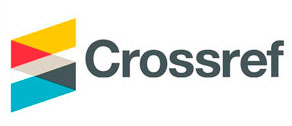Practices of cultural management of modern ukrainian city
Abstract
The cultural space of the modern Ukrainian society is investigated theoretically and empirically. It is s observed that the modern city is a social inequality indicators vivid illustration of control effectiveness or ineffectiveness, a source of social tension and social conflicts. All of the most pressing problems of society that fall into the range of sociologists and other researchers in the past decade related to problems of the city. Especially an urban culture, which includes a special type of social relations, typical cultural the features the city, encompasses economic, social, ethnic and information diversity plays in the development of cities. Analysis of the problem theoretical works suggests that the modern city is a multiple compatibility of territorial identities that are intersected in human creativity abound through new forms and supports many forms of cultural self-determination. Cultural aspects largely make an individual resident or certain areas of the city and the local community to provide the title role in dialogue on development policy and the involvement of all public and public members interested in talking about urban cultural development.
Attention is focused on the need to develop cultural mapping technology and its application in modern cities to create new cultural strategy. The data of empirical research: questionnaire survey among 4,600 respondents and expert survey of the role play elements and group written interview method «Wordcafe».
These data suggest that mainly private leisure practices, passive recreation are predominated which leads to the lack of citizens’ interest to citywide cultural programs and demands formatting by means of cultural mapping. It is characterized as self-organizing and autonomic. Social and cultural life in the city requires the building of institutions of culture content and the search for new forms of leisure technology. In many studies it is stated that citizens are interested in Melitopol cultural events, but also make concrete proposals for rational improvements in cultural and recreational area. It identifies the need for ongoing cooperation of the public, government and management in the field of culture.


